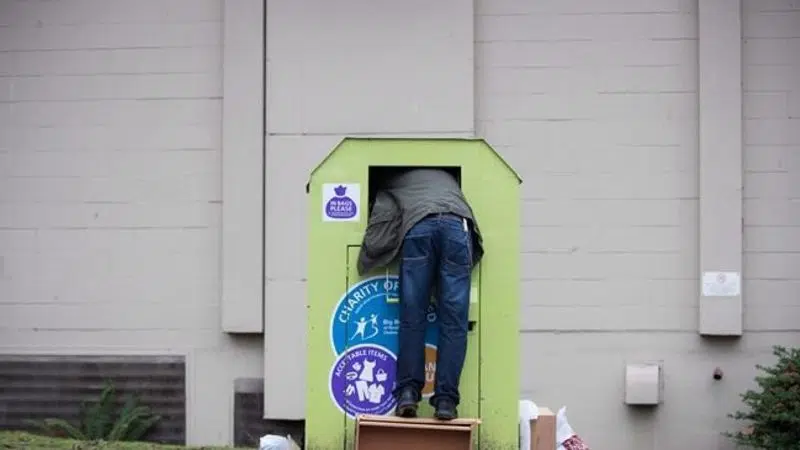
Donation bins sealed, removed in British Columbia after death of trapped man
VANCOUVER — A municipality and a non-profit foundation in British Columbia are shutting down clothing donation bins and looking at options to either make them more secure or remove them following the recent death of a man.
The District of West Vancouver says it is closing the bins in the community to ensure another tragedy doesn’t happen again.
A 34-year-old Vancouver man was found stuck in the opening of a donation bin near Ambleside Park in West Vancouver on Sunday and he couldn’t be revived by paramedics.


